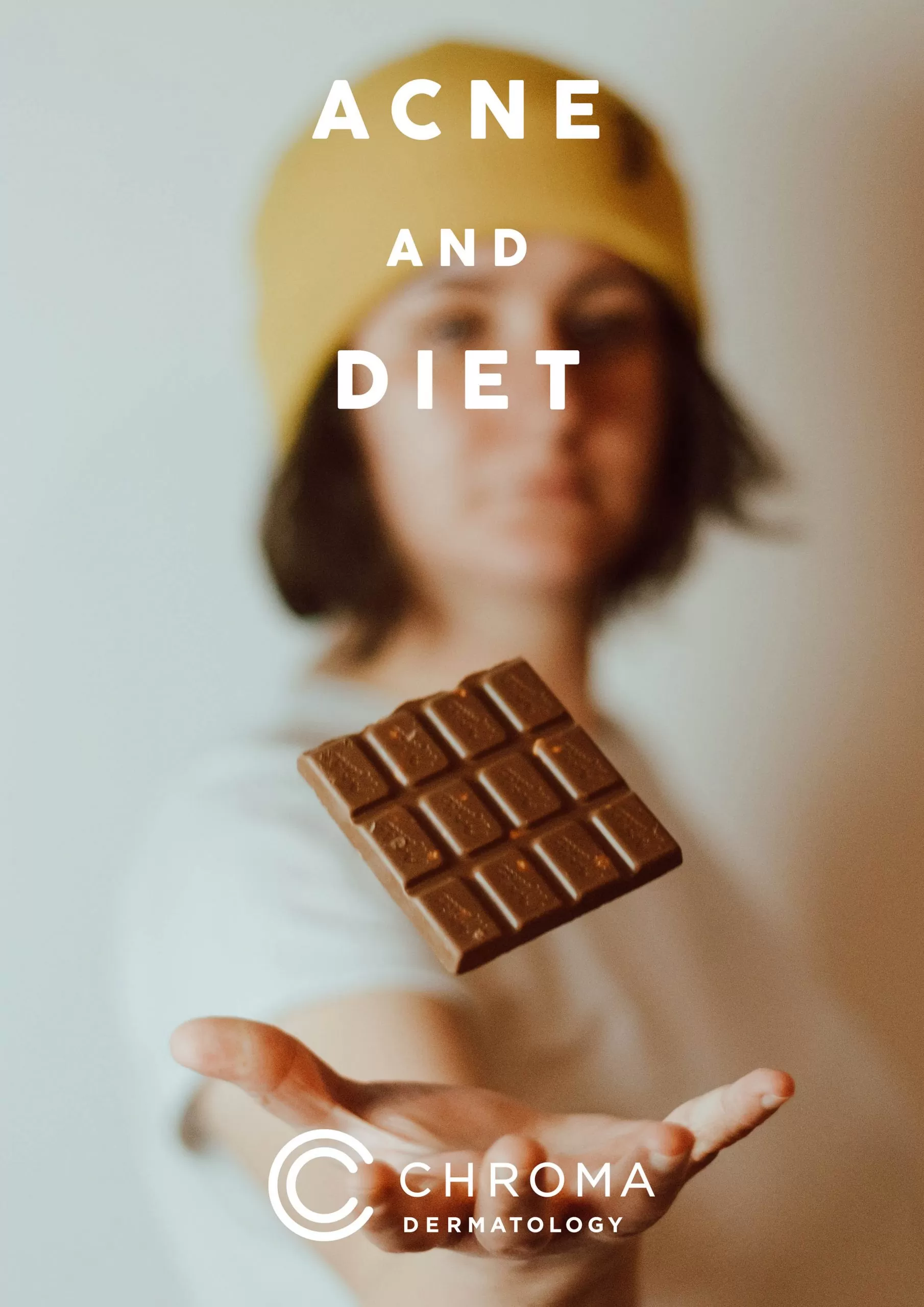After eating all those chocolates over Easter, many people will be wondering if it will cause pimples and how overall diet affects acne.
Numerous blogs and online forums claim that avoiding sugar or eliminating dairy will eliminate pimples. So, have those Easter eggs and chocolate really contributed to your pimples? How does diet affect acne?
Let’s start from the beginning and examine the scientific evidence for the relationship between diet and acne.
Acne is another name for pimples. It occurs in about 85% of teenagers and it is a common condition treated by dermatologists across the globe. Those with skin of colour will often find that pigmentation and scarring occur quickly and are difficult to treat. Treating acne early is very important to avoid complications.
What is glycaemic index?
The glycaemic index is a system of assigning a number to the carbohydrate-containing foods according to how much each food increases blood sugar levels. Food with a low GI value (55 or less) are more slowly digested, absorbed and metabolised by the body. Low GI foods cause a lower and slower rise in blood sugar (glucose) and insulin levels. High GI foods cause a quick and high rise in blood sugar (glucose) and insulin levels. Examples of foods that are high glycaemic index include white bread, short grain white rice, corn flakes and pumpkin. For more information on glycaemic index, click here
Should I curb the carbs to help my acne?
A healthy diet is the key, but you don’t have to eliminate carbs.
High glycaemic-load diets (HGLDs) may increase levels of insulin-like growth factor 1 (IGF-1) activity. IGF-1 increases production of oil cells (sebocytes) and stimulates hormone (androgen) production. But does this really result in acne? Some studies have suggested low glycaemic-load diets (LGLDs) decrease the production of oil (sebum) and decrease the number of pimples. A Cochrane review of the medical literature in 2015 however, found insufficient evidence to support LGLD for the management of pimples (acne).
Despite the fact that there is no conclusive evidence that LGLDs help acne, the overall health benefits cannot be ignored and for this reason, we advocate a healthy, low-GI diet for all our patients with acne.
Should I dump dairy to help my acne?
Dairy is an essential food group and should not be eliminated. However, low-fat and skim-milk products should be avoided.
Milk contains bovine insulin-like growth factor 1 (IGF-1) which can increase hormones and IGF-1 in the bloodstream just like HGLDs. A recent meta-analysis of 14 studies found a positive relationship between total milk intake and acne. Low-fat and skim-milk may aggravate acne because the fat-reducing process could enhance the insulin and IGF-1-promoting components of milk. So, get onto full cream milk and yoghurt and keep up the cheese but it’s all about moderation.
Should I weigh up and whey out?
Consider stopping whey protein supplements.
Studies have shown a link between consumption of whey protein and acne. Whey protein is a component of cow’s milk and a case report has shown that men who developed acne when they started whey protein supplements were able to settle their acne by stopping the whey.
Information obtained from the Journal of the American Academy of Dermatology. February 2019.
The information contained in this blog post is intended as a guide only and should not substitute seeking medical attention. Please see your healthcare provider for more information on suitability of products, treatments or procedures.






GROUND FLOOR, SUITE 15,
202 JELLS ROAD,
WHEELERS HILL, VIC 3150
SOUTH EAST MELBOURNE
+61 3 8560 6946
INFO@CHROMADERM.COM.AU
COPYRIGHT © 2019 CHROMA DERMATOLOGY
MEETINGS & EVENTS
FORM PATIENTS





COPYRIGHT © 2024 CHROMA DERMATOLOGY






